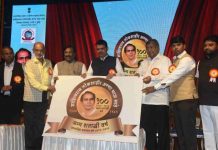The youth of the state also feel the ostentatious jathas are a farce. “There are enough platforms like social media to mobilise and connect with the youth,” says Renjith Nair, a PhD student at Kerala University. “The jatha culture existed a century ago when leaders were not able to connect with people on a daily basis. The youth has lost interest in this kind of political gimmickry.”
Both prominent and minor political parties need funds for elections. In the past, the liqour barons of the state were a main source behind the sponsorship of these jathas, however, the recent developments in the state have put a stop to that money flow. Now the parties are relying on contribution from the people.
Meanwhile, Congress MLA Joseph Vazhakkan believes that the jathas have not lost their relevance. According to him, they are an important aspect of Kerala polity where the political leadership visits all the 140 constituencies in the state and talks to the people about the various local issues plaguing them.
Congress MLA VT Balaram also thinks that jathas are still significant. “It is not political gimmickry but an organisational effort to mobilise people on a particular topic. Unlike other party events, political jathas reach out to the people. It is important in the age of social media to tell people about the importance of certain issues that are affecting them daily. Social and electronic media is flooded with so much news that it has become difficult for common people to pick out the important issue. So, in that sense, jathas are helpful in spreading awareness.”
P Sreeramakrishnan of the CPM calls the jathas ‘mass contact programmes’. “CPM’s Nava Kerala March is not a mere yatra but a string of events including breakfast discussions among other things,” says Sreeramakrishnan. “Though such processions are not irrelevant, they do need to be changed according to the present times.” According to him, cpm has realised this and is working towards making topics more attractive and contemporary.
Sreeramakrishnan also refuses to believe that the youth is moving away from taking part in the political affairs in the state. “We cannot say that youth is not interested in taking part in these jathas. The jatha conducted by the Democratic Youth Federation of India (DYFI) last month witnessed a huge participation by the youth.”
Even this time around, the enthusiasm among parties regarding these jathas is quite clear. It goes to show that even though new forms of reaching out to people have emerged, it will be long before the traditional methods of doing politics in the state go out of fashion. With more and more road shows set to ply the roads in the coming days, the relevant question for the common voter in Kerala is: will these jathas do them any good?
adarsh@tehelka.com













